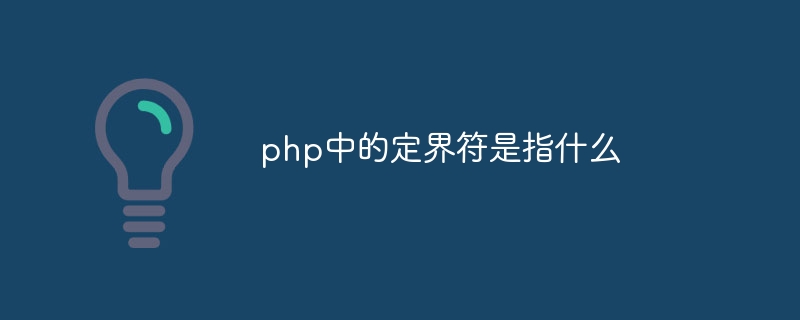Home >Backend Development >PHP Tutorial >What does delimiter mean in php
What does delimiter mean in php
- 下次还敢Original
- 2024-04-29 11:00:26849browse
There are 5 types of delimiters in PHP: semicolon, curly brackets, square brackets, parentheses, and single and double quotes. They are used to separate code blocks and statements, specify array elements, and enclose functions. Parameters and conditional expressions, and protect special characters in strings.

Delimiter in PHP
In PHP, a delimiter is a set of characters used to Separate code blocks or statements from other code blocks or statements. It essentially tells the PHP interpreter which part of the code to understand as a unit.
Common delimiters in PHP include:
- Semicolon (;): Delimiter between statements, Used to separate one statement from the next.
- Braces ({}): Enclose a block of code (such as a function or class body).
- Square brackets ([]): Enclose array elements or expressions in conditional statements (such as if statements).
- Parentheses (()): Enclose the parameters of a function call or arithmetic expression.
- Single quotes (') and double quotes ("): Enclose strings.
Uses of different types of delimiters:
Semicolon (;):
- Combine multiple statements into code blocks
- Optional, use. Use to write multiple statements on the same line.
##Braces ({}):
- Group blocks of code together, such as functions. , classes and control structures.
- Create scopes and define visible variable ranges.
Define an array and access array elements
- Specify conditional expressions in conditional statements. Parentheses (()):
Change the precedence of arithmetic operators.
- #Single quotes (') and double quotes ("):
- Define strings and protect special characters in strings.
Double quotes are used for string interpolation (embedding variables in a string).
The above is the detailed content of What does delimiter mean in php. For more information, please follow other related articles on the PHP Chinese website!

